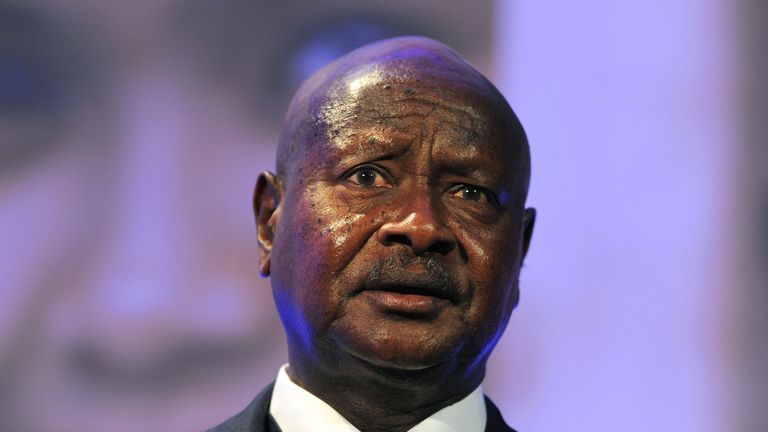Sky Views: How Africa is 'taming' the internet

Friday 27 April 2018 09:59, UK
John Sparks, Africa Correspondent
In the West, there are plenty of citizens, legislators and policymakers now trying to rope the social media giants like Facebook and Google into the world of government regulation.
This new-found zeal to monitor the content and information appearing on their platforms has been fuelled by an online avalanche of fake news and revelations about companies like Cambridge Analytica trying to swing elections in the United States and elsewhere.
When it comes to taming the internet, African countries like Tanzania and Uganda are well ahead of the curve. Over the past year or so, their leaders have been busy implementing a raft of new internet-related restrictions in the name of order, stability and responsible citizenship.
"Taming" is not really the right word. Instead, African states are currently bashing the freely-accessible internet into smithereens in multiple acts of virtual violence that regulators in the West should stay well clear of.
Take Tanzania for example, where the government has passed new rules making it mandatory for bloggers and administrators of other forums like YouTube channels to register with the regulator - and pay $900 (£647) for the privilege.
In a fairly blatant attempt to check free speech and online argument, applicants have to provide details of shareholders, share capital, staff qualifications and training programmes and a tax clearance certification.
Clearly, few - if any - Tanzanian bloggers are going to be able to come up with a list of shareholders and share capital - and the registration fee is stratospheric.
"Look, there are only about three or four bloggers in the entire country who can pay $900 for the privilege of posting online," said Maxence Melo, who runs the popular Tanzanian website JamiiForums.
"What's more, the new rules mean the government can collect data on us and our clients so they know who we are and exactly what we are saying."
Elsewhere in east Africa, Uganda is busy drawing up its own plans to skewer the internet as most of us understand it.
From July, mobile phone owners who use social media apps such as Facebook, Twitter and WhatsApp will be charged a daily tax of around two pence in a move described by the finance minister as a good way to "maintain the security of the country".
The country's long-time president, Yoweri Museveni, appears to love the idea, stating that people who use social media for "gossip" should pay.
He assured the public however, that he is a reasonable man. "I am not going to propose a tax on internet use for educational, research or reference purposes," he said (someone needs to remind President Museveni that he has got his own Twitter account).
None of this impresses the man behind Tanzania's best known political forum.
"African leaders worried about the future are reaching into their bag for old-school ways to assert control," says Mr Melo.
"If you write a Facebook post, they are going to use the same rules that apply to authors and clearly that is going to affect what they write."
In the West, the public and their representatives have begun to wade through the policy options and arguments which surround the regulation of the internet. In African countries like Tanzania, the electorate are unlikely to ever read about them.
Sky Views is a new series of comment pieces by Paste BN editors and correspondents, published daily at 9am.
Previously on Sky Views: Beth Rigby - Windrush a stain on May's government





